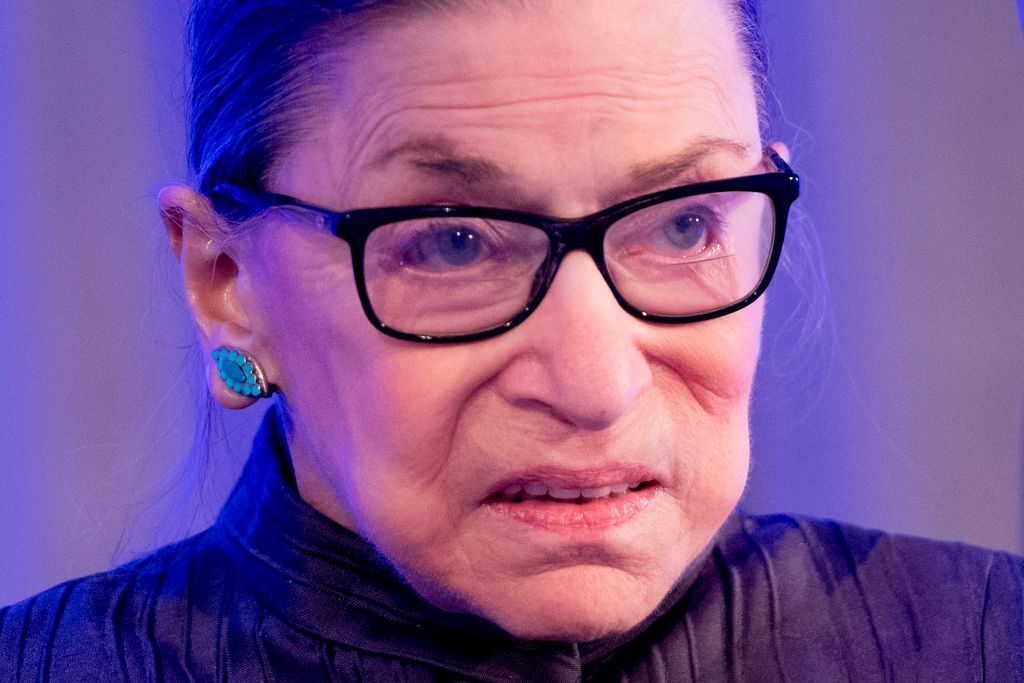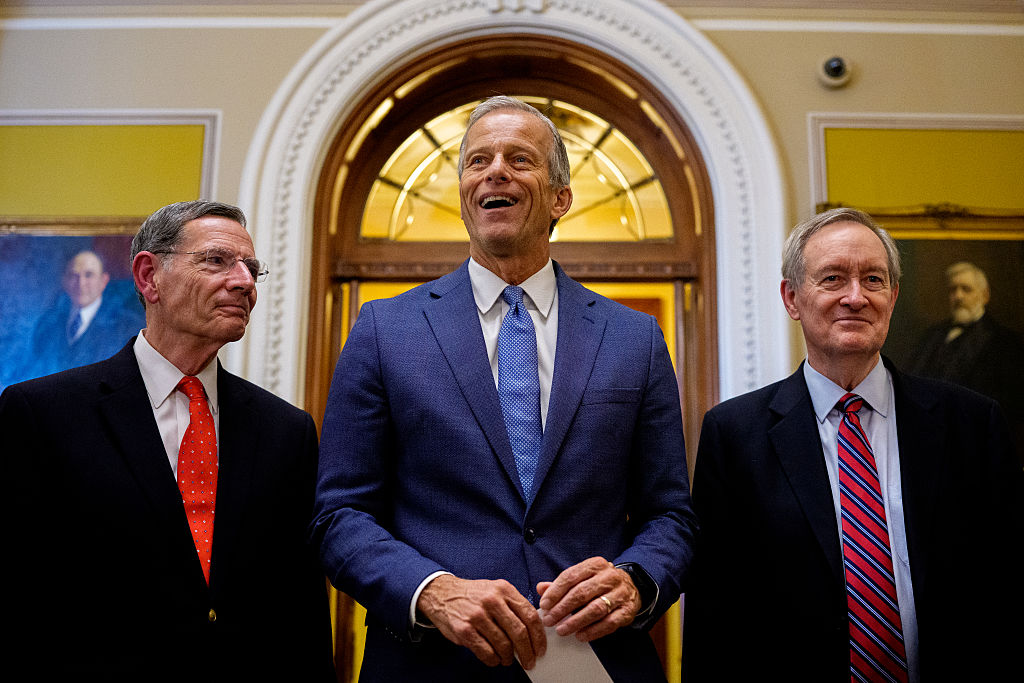Alexander Hamilton was right about many things. He was wrong about the judiciary. In a famous passage in Federalist 78, he said that the judiciary as framed by the proposed U.S. Constitution would be “the least dangerous branch.” Why? Because it commanded neither an army (as the executive branch did) nor the power of the purse (as did Congress). The judiciary’s potency commanded only “merely judgment” and must, he added, “ultimately depend upon the aid of the executive arm even for the efficacy of its judgments.”
Responding to Hamilton, the anti-federalist writer “Brutus” warned that the Constitution did not provide an effective mechanism for reining in judicial arrogance:
There is no power above them, to control any of their decisions. There is no authority that can remove them, and they cannot be controlled by the laws of the legislature. In short, they are independent of the people, of the legislature, and of every power under heaven. Men placed in this situation will generally soon feel themselves independent of heaven itself.
The place allocated to the judiciary by the Founders sought to circumvent the evils that “Brutus” envisioned. And had the judiciary kept within those bounds, all might have proceeded as the Founders intended. But we have had some 250 years of hermeneutical ingenuity expended on twisting the Constitution to serve partisan ends. The co-optation and perversion of the judiciary into a policymaking organ furthering a leftist agenda has been part of that process.
Legal historians usually point to the case of Marbury v. Madison (1803) as the first stop on the train whose terminus was judicial supremacy. The details of the case need not detain us. But along the way, Chief Justice John Marshall argued that Congress had erred when it extended the prerogative of the Supreme Court in the Judiciary Act of 1789. This, later judges argued, established a right of judicial review, i.e., the right of the Court to pass muster on the statutes and orders issued by the other two branches. Jefferson took issue with the decision, noting later:
You seem to consider the judges as the ultimate arbiters of all constitutional questions; a very dangerous doctrine indeed, and one which would place us under the despotism of an oligarchy. Our judges are as honest as other men, and not more so. They have, with others, the same passions for party, for power, and the privilege of their corps. . . . Their power [is] the more dangerous as they are in office for life, and not responsible, as the other functionaries are, to the elective control.
The Constitution has erected no such single tribunal, knowing that to whatever hands confided, with the corruptions of time and party, its members would become despots. It has more wisely made all the departments co-equal and co-sovereign within themselves.
As it happens, the explosive seeds planted by Marbury lay dormant until the 1850s. And they did not really burst forth until the left-liberal program of social engineering got underway in the late 1950s and 1960s. The key case, I believe, was Cooper v Aaron (1958), which bore on the issue of desegregation. Anyone who has seen what prodigies of social engineering have been wrung out of the Fourteenth Amendment, especially the seemingly innocent phrases “due process” and “equal protection,” will tremble as he reads through this decision.
Article VI of the Constitution established that the Constitution and “the Laws of the United States which shall be made in Pursuance thereof…shall be the supreme Law of the Land.” But the Court in Cooper v Aaron went one better, and declared: “The interpretation of the Fourteenth Amendment enunciated by this Court in the Brown case is the supreme law of the land (my emphasis).”
You see why partisans of a so-called “living Constitution” have greeted the instruments of judicial review and judicial supremacy so eagerly. Can’t get the people behind a policy you like? No problem! Just have the courts step in and discover a “right” buried in some harmless phrase of the Constitution. Ditto with things you don’t like. Pretend to discover a precedent that makes it incompatible with your interpretation of some bit of the Constitution.
The distance between saying that the Constitution is the supreme law of the land and saying that an interpretation foisted by the Court onto the Constitution is the supreme law is the distance between a government of checks and balances in which the people are sovereign, and a government in which the judiciary is sovereign.
Shortly before his untimely death, Antonin Scalia pointed out the scandalous reality that the United States was in fact, if not in theory, governed by nine unelected be-robed officials who served for life, all of whom, as the Court is presently populated) went to Harvard, Yale, or Columbia. This situation is exactly what Jefferson meant by “the despotism of an oligarchy.”
Some thoughtful legal commentators (Alexander Bickel, for example) have worried that the growing habit of judicial supremacy would undermine the trust and ultimately the legitimacy of the judiciary in this country. To the extent that the courts were seen to frustrate rather than support the will of “we, the people,” to that extent their protected status as (supposedly) non-partisan arbiters of the law would be eroded.
And so it has come to pass. Which is why the retirement of Anthony Kennedy is such a big deal. Kennedy was a slippery character. Nominated by Ronald Reagan (a consolation prize when the great jurist Robert Bork was traduced by the mendacious calumnies of Teddy Kennedy and his weaponised chihuahuas), Kennedy was supposed to be a “conservative” jurist. He sometimes voted with the conservatives, i.e., with those who believed that the purpose of the Court was to interpret the law, not make policy. But on so-called “social issues”—abortion, indeed, anything have to do with what occupies humans in the vicinity of the waist—he was a reliable proponent of “progressive” sentiment. The Left understands this and is in the process of remilitarising their rhetorical Rhineland to defeat whomever Donald Trump nominates.
Unfortunately for them (but fortunately for the country) they will not be able to defeat his nominee. Thanks to Harry Reid, who dispensed with the filibuster, the President needs but a simple majority to have his candidate confirmed. Republicans currently command a small majority in the Senate (it will, I predict, grow with the midterm elections), which means that his nominee is almost certain to be confirmed, especially since the list of likely candidates is stellar (thanks to Leonard Leo and the Federalist Society).
The Left is apoplectic about the prospect of a genuinely conservative replacement for Anthony Kennedy precisely because Hamilton was wrong about the judiciary. It turns out to have been warped into a very dangerous branch of government indeed, as it has more and more been called into service as a tool of the Leftist social agenda. A genuinely conservative jurist—by which, again, I do not mean ideologically conservative, merely impartial—would dampen that aspiration. But if you think the outcry on the Left is vicious now, just wait until it is legally permissible to inter the nodding, narcoleptic Ruth Bader Ginsburg. There is no reason to think that Donald Trump will change his mind about appointing judges and justices whose jurisprudence is like that of Antonin Scalia. Which means that the nomination for Kennedy’s replacement will be a quiet walk in the park compared to what comes next.

























